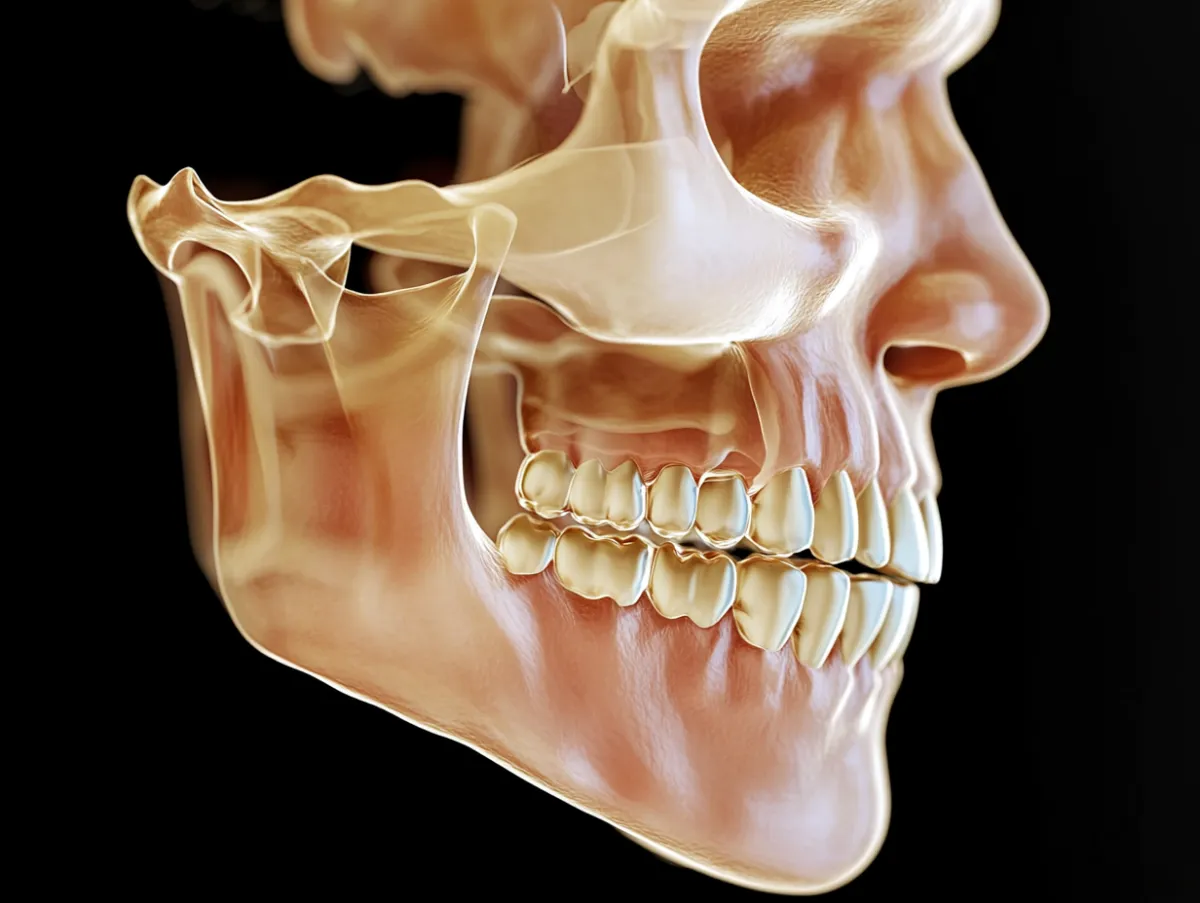
Is Myofunctional Therapy Right for You?
Who is a good candidate for myofunctional therapy?
Myofunctional therapy is gaining traction within the healthcare community as a holistic approach to treating various oral and facial disorders. This therapeutic method focuses on optimizing the function of the muscles in the mouth and face, which can significantly impact overall health and well-being.
But what exactly is myofunctional therapy, and why should you consider it?
This therapy aims to correct improper muscle function related to breathing, chewing, swallowing action, and even speech. Poor muscle habits can lead to a variety of issues such as sleep apnea, chronic mouth breathing, and even orthodontic problems.
By addressing these dysfunctional habits, myofunctional therapy improves the efficiency of the orofacial muscles, making day-to-day activities easier and more comfortable.
Given its comprehensive approach, myofunctional therapy can benefit both children and adults alike. Younger individuals often undergo this therapy to correct issues that can affect their dental development and overall health.
For adults, it can offer solutions to chronic problems that have developed over years. Because of its wide-ranging benefits, it's crucial to understand who is a good candidate for this type of therapy and how it could potentially improve your quality of life.
Are you curious about how myofunctional therapy can help you or your loved ones?
This article will delve into the specifics of what the therapy entails and who stands to benefit the most from it. Through an understanding of the conditions it treats and how to determine if it's right for you, you'll be equipped to make an informed decision about pursuing this specialized treatment.
What is Myofunctional Therapy?
Myofunctional therapy is a specialized treatment aimed at improving the function of the orofacial muscles. Essentially, it focuses on retraining muscles around the mouth and face to work correctly and efficiently.
This therapy is particularly useful in addressing disorders related to improper tongue position, swallowing patterns, and breathing.
The primary goal of myofunctional therapy is to ensure the tongue rests at the roof of the mouth, teeth close correctly, and breathing occurs through the nose rather than the mouth.
Such adjustments can have far-reaching benefits including enhanced sleep quality, better digestion, and improved facial appearance. The therapy often involves a set of tailored exercises that target the muscles in question, promoting proper alignment and functionality.
While it may seem straightforward, the impact of these exercises can be significant. From alleviating speech problems to enhancing oral hygiene, myofunctional therapy covers a broad spectrum of issues.
Conditions like sleep apnea, temporomandibular joint disorders (TMJ), and even certain orthodontic problems can be improved with specialized exercises and techniques.
Sessions are typically guided by trained therapists or specialists who customize treatment plans based on individual needs. Through regular, dedicated practice, patients often notice significant improvements in their symptoms and overall quality of life.
Notably, myofunctional therapy often works in conjunction with other treatments, such as orthodontics or sleep medicine, to provide a comprehensive solution to oral and facial health issues.
Common Conditions Treated by Myofunctional Therapy
Myofunctional therapy is a specialized treatment aimed at improving the function of the muscles used for breathing, speaking, chewing, and swallowing action. This form of therapy addresses a wide range of conditions that contribute to poor oral and overall health.
One of the most common issues it targets is an improper swallowing pattern, often called "tongue thrust," where the tongue incorrectly pushes against the teeth during swallowing, potentially causing dental problems like misalignment or open bite.
Sleep apnea is another condition frequently treated with myofunctional therapy. This sleep disorder is characterized by pauses in breathing or shallow breaths while sleeping, often due to an obstructed airway.
By retraining the muscles of the tongue and throat, myofunctional therapy can help open up these airways, leading to better sleep quality and overall health.
Children with speech disorders also benefit from myofunctional therapy. Issues like lisps, difficulty pronouncing certain letters, or a nasal-sounding voice can be improved by strengthening and correctly aligning the muscles responsible for speech.
Bruxism, or teeth grinding, is another condition where myofunctional therapy can make a significant difference.
By improving the overall function and relaxation of the jaw muscles, this therapy can help reduce grinding and its associated oral health issues.
Orthodontic patients can also benefit from myofunctional therapy by ensuring that the tongue and facial muscles function properly, aiding in the retention of orthodontic results.
Lastly, myofunctional therapy can assist in managing Temporomandibular Joint Disorders (TMJ). By employing exercises that improve the muscles around the jaw, patients can experience relief from pain and enhanced jaw function.
By addressing these common conditions, myofunctional therapy not only improves oral health but also enhances overall well-being, making it a versatile and effective treatment option.
Who Can Benefit from Myofunctional Therapy?
Myofunctional therapy is a specialized treatment designed to address issues related to the muscles of the face, mouth, and throat. But who exactly can benefit from this therapy? Let's break it down.
Children and Adults with Sleep Disorders: One of the primary candidates for myofunctional therapy are individuals who suffer from sleep-related issues such as sleep apnea or snoring. By strengthening the muscles around the airway, myofunctional therapy can significantly improve breathing patterns and enhance sleep quality.
People with Orofacial Myofunctional Disorders (OMD): OMDs include conditions like tongue thrust, where the tongue pushes against the teeth while swallowing, speaking, or at rest. This can lead to misaligned teeth or other orthodontic issues. Both children and adults with these disorders are prime candidates for myofunctional therapy.
Individuals with Speech or Swallowing Difficulties: Poor muscle function in the face, mouth, or throat can cause speech impediments and difficulties swallowing. Myofunctional therapy targets these muscles to enhance their function, improving both speech clarity and swallowing efficiency.
Patients Undergoing Orthodontic Treatment: Correcting teeth alignment often involves more than just braces. Strengthening the facial muscles through myofunctional therapy can support orthodontic treatment, ensuring that the teeth stay aligned post-treatment.
People with TMJ Disorders: Temporomandibular joint (TMJ) disorders can cause jaw pain and headaches. By balancing the muscles around the jaw, myofunctional therapy can provide relief from these symptoms.
In summary, myofunctional therapy offers benefits for a wide range of conditions affecting both children and adults. If you find yourself or a loved one dealing with any of these issues, consulting a myofunctional therapist might be a game-changing step towards better health.
How to Determine If Myofunctional Therapy is Right for You
Determining if myofunctional therapy is the right fit often starts with recognizing the specific symptoms and concerns you or your child are experiencing.
Myofunctional therapy can be highly beneficial for individuals dealing with snoring, sleep apnea, speech difficulties, or chronic mouth breathing. Kids who have trouble with breastfeeding, bottle-feeding, or transitioning to solid foods may also be good candidates.
Adults suffering from TMJ disorders or persistent headaches often find relief through myofunctional exercises.
One of the first steps is a consultation with a qualified myofunctional therapist, dentist, or orthodontist, who will perform a comprehensive evaluation. They will assess your oral posture, tongue movement, breathing patterns, and any alignment issues.
Sometimes, additional diagnostic tools like a sleep study or X-rays may be recommended to get a clearer picture of underlying issues.
Self-awareness can also play a crucial role. If you find yourself frequently breathing through your mouth rather than your nose, or if you're constantly waking up tired even after a full night's sleep, these are red flags.
Speech impediments or difficulty chewing and swallowing food can also point to underlying myofunctional problems.
Parents should keep a close eye on their children for signs such as frequent drooling, thumb-sucking, or challenges in advancing to age-appropriate feeding stages.
Consider lifestyle and habits. If you've tried other treatments without success or if you want a more holistic approach to oral health, myofunctional therapy may be worth exploring. Always opt for a certified professional to guide you through the process to maximize the effectiveness of the therapy.
Conclusion and Next Steps
Myofunctional therapy offers a holistic approach to address a range of issues related to oral and facial muscles. Whether you're dealing with sleep apnea, chronic jaw pain, or speech difficulties, this therapy could provide significant improvements in your quality of life.
It's clear that a variety of individuals—from children with developmental concerns to adults with chronic conditions—can benefit from targeted exercises and expert guidance.
To determine if myofunctional therapy is right for you, start by consulting with a certified myofunctional therapist or a healthcare provider familiar with this specialized field.
They can conduct a thorough assessment to identify any dysfunctions and customize a treatment plan tailored to your specific needs. This initial consultation often includes an evaluation of your breathing patterns, tongue posture, and swallowing habits.
Taking the next step could simply involve reaching out to a myofunctional therapist in your area. Many offer virtual consultations, making it easy to seek expert advice without geographical limitations.
Additionally, a growing number of dental and medical practices are integrating myofunctional therapy into their services, broadening your options for professional guidance.
So, if you're experiencing symptoms that align with those treatable by myofunctional therapy, don't wait. Early intervention can lead to better outcomes and improve your overall health and well-being.
Connect with a specialist today to explore this therapeutic option and take the first step toward a healthier, more functional you.
For more information and personalized guidance, consider scheduling a consultation with a certified myofunctional therapist. Your path to improved function and well-being can begin today.

